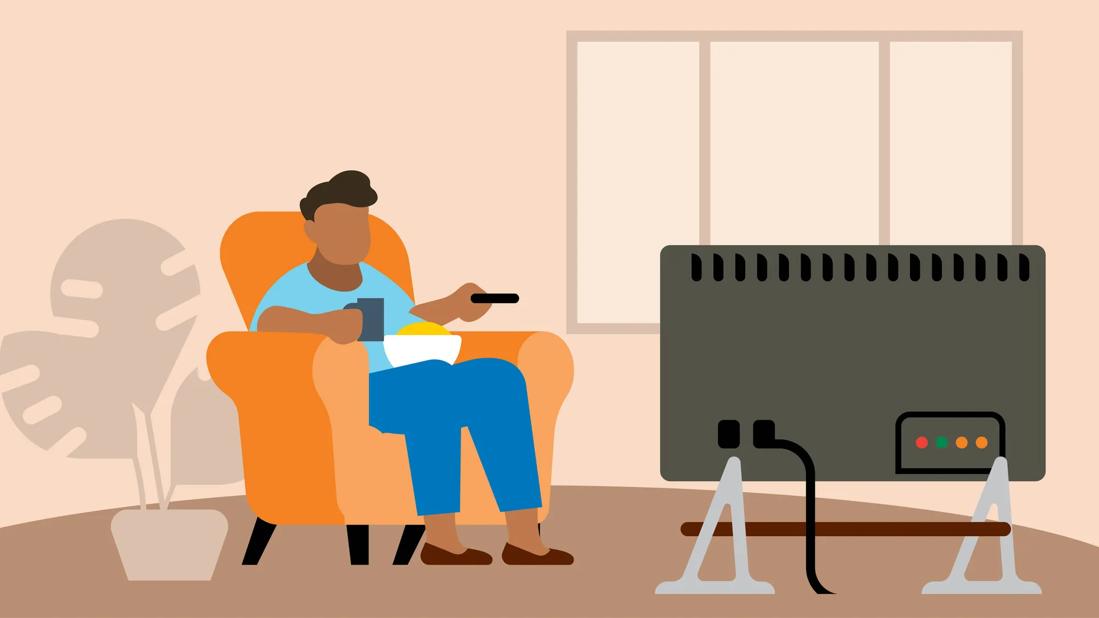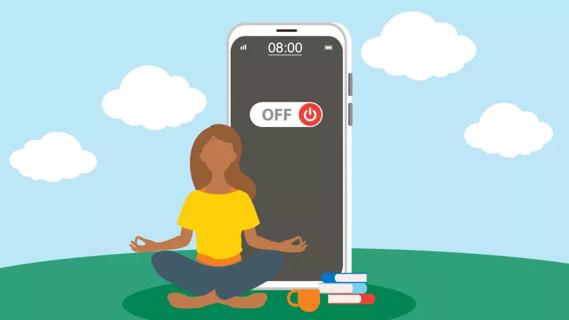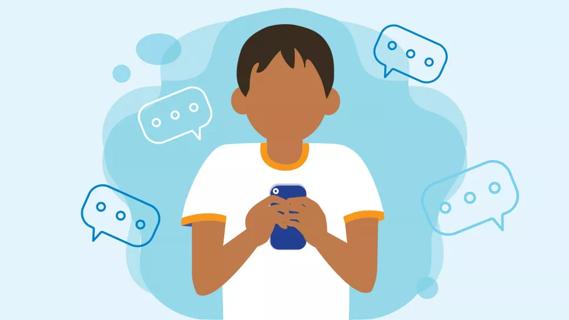When done in excess, watching TV can disrupt your sleep and lead to physical inactivity and social isolation

“Just one more episode — I swear!” You had such good intentions, but now it’s well after midnight, and you’ve watched an entire season of “The Great British Baking Show” without so much as a bathroom break.
Advertisement
Cleveland Clinic is a non-profit academic medical center. Advertising on our site helps support our mission. We do not endorse non-Cleveland Clinic products or services. Policy
We all indeed have our little guilty pleasures. And we’re not here to shame you for them. We’re here to say your three favorite words: Don’t feel guilty. A TV marathon isn’t necessarily a bad thing. After all, getting lost in a favorite series can be a great distraction from the stresses of a bad day.
But like all things, it shouldn’t be taken to extremes. And binge-watching shouldn’t become a replacement for experiencing the full lives we have in front of us.
So, how can we indulge our love for our favorite shows without missing out on real life?
Registered psychotherapist Natacha Duke, RP, breaks down seven strategies to help us balance our viewing habits.
Binge-watching is when you watch multiple episodes of a TV show in one sitting. You may have heard the term used as a testament to how good a show is — it’s just that hard to stop watching!
With the wide world of streaming services we live in, it’s become easier than ever to watch three, five or even 10 episodes at a time. Gone are the days of waiting a week to find out what happens to your favorite characters. And while this has created convenience, it’s also created opportunities for us to indulge too much at times.
Because while the concept of binge-watching may be proof of a great show, it can also have a negative impact.
Advertisement
The act of binge-watching a TV show isn’t inherently bad for us. It’s common for many of us to use it as a way to relax, de-stress or escape our troubles for a bit.
“There is a place for that kind of stress management, which we call ‘distraction,’” shares Duke. “But you have to ask yourself: Is this coping mechanism serving me?”
You may be engaging in harmful binge-watching habits if:
“With anything, it’s really when it starts to interfere in your functioning and other aspects of your life that it can be a problem,” she notes.
Here are some ways that binge-watching can impact both your physical and mental health.
Of course, it can be tempting to stay up late to finish the last season of the show you’re sucked into — especially a suspenseful one! And sure, it’s OK if a portion of the evening time is your chance to indulge in some time on the couch, but don’t let the habit cut into your sleep schedule.
Because TV isn’t just entertaining — it’s also energizing. The mental stimulation from a show, combined with the blue light from the screen, makes it hard to fall asleep once you finally get to bed. A 2022 review found that binge-watching is linked to insomnia. Shortchanging your sleep can have serious consequences for your physical and mental health.
Watching too much TV can lead to isolation when it stops you from interacting with friends and family.
Duke adds that getting too sucked into a show can also tear you away from reality. Especially if you watch a show in rapid succession, you may feel a sense of emotional loss after the show ends.
And sure, we’ve all identified with our favorite protagonists in a show. But combined with isolation, this can become a harmful combo.
“If somebody doesn’t have a social support network, grieving the end of a TV show can be another source of depression,” explains Duke. “Instead of building up their social network, they’re getting that through the television. So, that’s another way it could be problematic.”
It’s no surprise that many of us may be sitting too much throughout the day. And if you’re going on a 10-episode marathon of a show, that’s even more time you’re spending sitting down or not moving enough.
Of course, many of us sit for other reasons, too, like work or driving. But a 2020 study found there was a big difference between active sitting (the kind you may do when you’re at work) and inactive sitting (like lounging while watching a show). Inactive sitting was associated with a higher risk of having obesity and other health concerns.
Advertisement
All of this doesn’t mean you have to cut out your favorite shows completely. Instead, here are some ways to have a better relationship with your streaming services:
Advertisement
Cozying up for an occasional television marathon isn’t the worst activity. But as with most things, “moderation” is the magic word. As long as you’re taking breaks, still engaging with loved ones and staying active, a binge-watching session here and there won’t do that much harm.
But it’s important to take note if you’re noticing a shift in your behavior, physical health or social life due to binge-watching too much TV. Speak to a healthcare provider or psychologist to get more strategies on how to find a more balanced relationship with your favorite shows.
Advertisement

Sign up for our Health Essentials emails for expert guidance on nutrition, fitness, sleep, skin care and more.
Learn more about our editorial process.
Advertisement

It isn’t a recognized mental health disorder, but research shows that problematic social media use can negatively affect your mental health, self-esteem and sleep

Too much blue light, especially from digital sources, may lead to eye strain and computer vision syndrome

Imagination, completing tasks and social interactions are all key benefits for your brain

They’re fun to watch, but medical TV shows are often more hype than reality — and you shouldn’t rely on them for factual medical information

Embrace mindfulness and practice checking your phone consciously, not compulsively

Identify your triggers, set ground rules for your break and start practicing mindfulness

Too much screen time and unrealistic expectations and perceptions and can lead to an increased risk of anxiety and depression

It can affect your child’s development, but not in a way you might think

Even small moments of time outdoors can help reduce stress, boost mood and restore a sense of calm

A correct prescription helps your eyes see clearly — but as natural changes occur, you may need stronger or different eyeglasses

Both are medical emergencies, but they are very distinct events with different causes